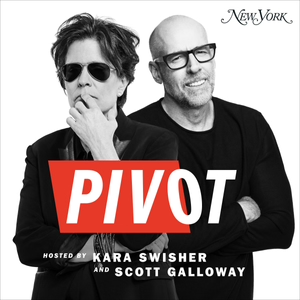
New options for managing chronic pain after the opioid crisis
07/25/24 • 24 min
1 Listener
Chronic pain affects hundreds of millions of people around the world. But the opioid crisis in North America led many health care providers to realize they relied too heavily on drugs to help patients manage their pain.
In this episode, a pain management specialist discusses new developments in pain treatment and why there’s hope for patients with chronic pain. Rachael Rzasa Lynn Associate Professor of Anesthesiology, University of Colorado Anschutz Medical Campus speaks to Amanda Mascarelli Senior Health and Medicine Editor at The Conversation in the US about emerging chronic pain treatments.
This episode was written and produced by Katie Flood with assistance from Mend Mariwany. Eloise Stevens does our sound design, and our theme music is by Neeta Sarl. Gemma Ware is the executive editor. Full credits available here. Subscribe to a free daily newsletter from The Conversation. To support what we do, please consider donating to The Conversation.
Further reading:- New treatments offer much-needed hope for patients suffering from chronic pain
- Chronic pain can be objectively measured using brain signals – new research
- Understanding that chronic back pain originates from within the brain could lead to quicker recovery, a new study finds
- How cannabis and psilocybin might help some of the 50 million Americans who are experiencing chronic pain
Chronic pain affects hundreds of millions of people around the world. But the opioid crisis in North America led many health care providers to realize they relied too heavily on drugs to help patients manage their pain.
In this episode, a pain management specialist discusses new developments in pain treatment and why there’s hope for patients with chronic pain. Rachael Rzasa Lynn Associate Professor of Anesthesiology, University of Colorado Anschutz Medical Campus speaks to Amanda Mascarelli Senior Health and Medicine Editor at The Conversation in the US about emerging chronic pain treatments.
This episode was written and produced by Katie Flood with assistance from Mend Mariwany. Eloise Stevens does our sound design, and our theme music is by Neeta Sarl. Gemma Ware is the executive editor. Full credits available here. Subscribe to a free daily newsletter from The Conversation. To support what we do, please consider donating to The Conversation.
Further reading:- New treatments offer much-needed hope for patients suffering from chronic pain
- Chronic pain can be objectively measured using brain signals – new research
- Understanding that chronic back pain originates from within the brain could lead to quicker recovery, a new study finds
- How cannabis and psilocybin might help some of the 50 million Americans who are experiencing chronic pain
Previous Episode

Can shared experiences bring people closer together?
Across the world, fans will soon be tuning in at all hours of the day and night to watch the Paris Olympics. In a world where on-demand media streaming is now increasingly the norm, sport is something of a rarity. It’s watched live, often with other people.
Can something as simple as watching a sporting competition at the same time bring people closer together? In this episode, we explore this question with a Garriy Shteynberg an associate professor of psychology at the University of Tennessee in the US who studies the impact of shared experiences.
We're running a listener survey to hear what you think about the podcast. It should take just a few minutes of your time and we’d really appreciate your thoughts. You can fill it in here.
This episode was written and produced by Katie Flood with assistance from Mend Mariwany. Eloise Stevens does our sound design, and our theme music is by Neeta Sarl. Gemma Ware is the executive editor. Full credits available here. Subscribe to a free daily newsletter from The Conversation. To support what we do, please consider donating to The Conversation.
Further reading and listening:- ‘Collective mind’ bridges societal divides − psychology research explores how watching the same thing can bring people together
- How to depolarise deeply divided societies – podcast
- More coverage of the 2024 Paris Olympics across The Conversation
Next Episode

Fightback mounts against trade deals fossil fuel investors can use to sue countries over climate action
Momentum is growing against clauses in investment treaties that permit companies to sue a state if it decides to keep fossil fuels in the ground. In this episode, we revisit the secretive world of investor-state dispute settlement (ISDS), which some experts are worried could jeopardise global efforts to save the climate and cost countries billions of dollars in the process.
Kyla Tienhaara, Canada research chair in economy and environment at Queen's University, Ontario in Canada, comes back on The Conversation Weekly to update us on the latest resistance to these clauses.
Part of this episode was first aired in October 2022. You can listen to the original episode here. It was produced by Gemma Ware and Mend Mariwany, with sound design by Eloise Stevens. Our theme music is by Neeta Sarl. Full credits for this episode are available. Sign up here for a free daily newsletter from The Conversation.
Further reading:
- How treaties protecting fossil fuel investors could jeopardize global efforts to save the climate – and cost countries billions
- Energy charter treaty makes climate action nearly illegal in 52 countries – so how can we leave it?
- How Clive Palmer is suing Australia for $300 billion with the help of an obscure legal clause (and Christian Porter)
- The Energy Charter Treaty lets fossil fuel firms sue governments – but its future is now in question
If you like this episode you’ll love
Episode Comments
Generate a badge
Get a badge for your website that links back to this episode
<a href="https://goodpods.com/podcasts/the-conversation-weekly-176770/new-options-for-managing-chronic-pain-after-the-opioid-crisis-63655126"> <img src="https://storage.googleapis.com/goodpods-images-bucket/badges/generic-badge-1.svg" alt="listen to new options for managing chronic pain after the opioid crisis on goodpods" style="width: 225px" /> </a>
Copy




